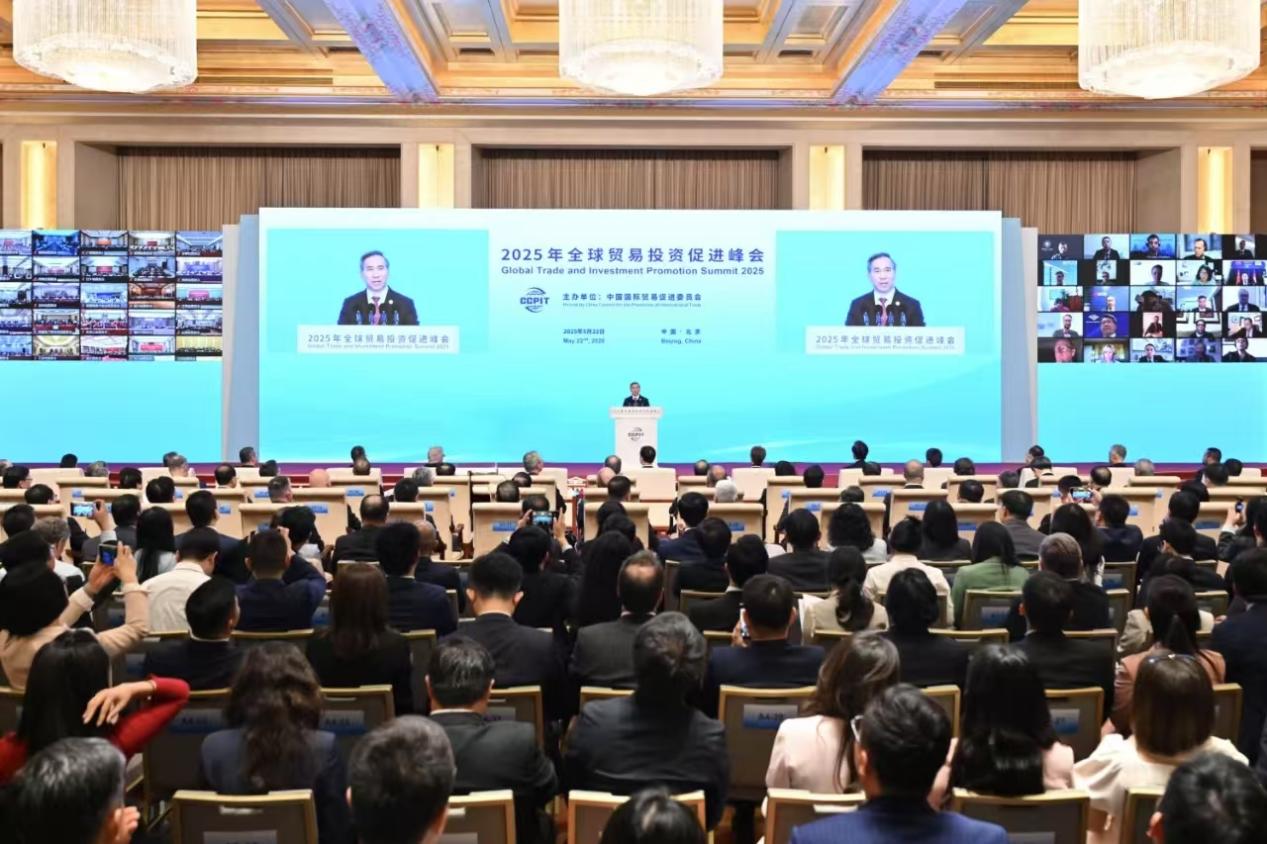By He Yin, People’s Daily
In today’s world, the international landscape is undergoing profound changes, and the resurgence of unilateralism, protectionism, and bullying practices is posing formidable challenges to global development.
Amid such uncertainty, one question looms large: how can countries chart a course toward greater stability? The answer, now as ever,lies in embracing openness as the key to solution and reaffirming cooperation as the only viable path forward.
This conviction was underscored at the Global Trade and Investment Promotion Summit 2025, held in Beijing on May 22. Focusing on the themes of embracing the era of digital intelligence and working together for common development, the summit convened nearly 400 guests from 48 countries and regions for dialogue and exchanges on development and cooperation.
The event reaffirmed China’s firm commitment to high-level opening up and highlighted the international community’sstrong expectations for the opportunities that China continues to offer.
Believing in China is believing in a better tomorrow, and investing in China is investing in the future. This year’s summit saw a record in participation, with executives from 70 foreign-invested enterprises operating in China – 29 of which are among the Fortune Global 500 – attending the event. All 16 foreign chambers of commerce in China were represented, with seven sending their presidents to lead the delegations.
As participants remarked,”Embracing China means embracing opportunities” and “Continuing to invest in China means participating in its growth and innovation.” The vibrancy of these discussions demonstrated not only the Chinese market’s enduring appeal, but also the growing role China plays in shaping international cooperation as it continues to open up and develop.
First held in 2022, the Global Trade and Investment Promotion Summit has come to reflect the prevailing trends in the global economy. This year’s emphasis on digital intelligence corresponds with the ongoing wave of technological advancement – ranging from artificial intelligence and quantum computing to big data and blockchain.
As a new round of technological revolution and industrial transformation is gaining momentum, technological innovation has become essential to the development agendas of nations around the world. To this end, a Beijing Initiative was launched during the event, calling on further cooperation in the digital era to drive global growth and shared prosperity.
China’s pursuit of high-quality development is creating fresh opportunities for international cooperation. As countries strive to embrace the digital and intelligent era, China’s development philosophy and practices are gaining increasing global recognition. The country’s digital economy is booming, giving rise to new technologies, models, and business forms, some of which are globally competitive.
This commitment to innovation is already yielding results. From joint efforts between Chinese and Thai companies to build a 5G factory, to China and Peru working together to construct South America’s first smart port of Chancay, China is joining hands with a growing number of global partners in collaborative digital innovation, exploring the frontier of emerging industries.
Both history and practice have proven time and again that the more the world economy is confronted with uncertainty and risks, the greater the need for openness to break through bottlenecks and for cooperation to pool strength.
This year, trade volatility has persisted, and the global economic recovery remains difficult, exacerbated by the unilateral and protectionist policies of certain countries. At such a critical juncture, wisdom and responsibility are urgently needed. As the world’s second-largest economy, China has reaffirmed its commitment to expanding high-standard opening up, and is widely regarded as a vital force for promoting global openness and cooperation.
As Rebeca Grynspan, secretary-general of the United Nations Conference on Trade and Development, remarked, China’s belief in open trade and in the contributions of trade and investment to development makes it “a very important example of development in the 20th and 21st century.”
The steady progress in building the China-ASEAN Free Trade Area (CAFTA) offers a compelling example. The recent announcement of the full completion of negotiations on the Version 3.0 CAFTA marks a crucial step toward formally signing an upgraded protocol by the end of this year. As major developing economies with global influence, China and ASEAN are taking resolute steps toward greater trade liberalization. This bolsters their own development while also reinforcing global confidence in building a universally beneficial and inclusive economic globalization.
China stands ready to work with all countries inupholding true multilateralism, safeguarding the multilateral trading system with the World Trade Organization at its core, firmly opposing unilateralism, protectionism, and economic coercion, and building an open world economy. Through these efforts, China will continue to serve as a stabilizing force and a source of predictability in an increasingly uncertain global environment.
